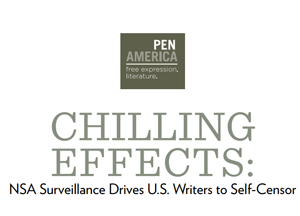26 Nov 2013 | Digital Freedom, European Union
Dutch MEP Marietje Schaake has launched a campaign that aims to stop European businesses selling surveillance equipment to authoritarian regimes.
In an email, Schaake explained:
“It is unacceptable that EU made technologies are still exported, deployed and operated by European companies to third countries without oversight.
Globally, citizen’s digital freedoms are under threat of mass-surveillance, censorship and hacking. So far the EU is unwilling to take action.
In October 2012 the European Parliament adopted legislative amendments that would curb the export of digital arms.
So far the European Commission and Member States are unwilling to meet Parliament’s demand, so we need vocal public support.”
Index shares Schaake’s concerns. Earlier this year, we joined an international coalition calling for an investigation into the use of FinFisher technology in Pakistan.
Before that, Index’s Mike Harris wrote about the topic for the Independent here.
You can find out more about the campaign at www.stopdigitalarms.eu
11 Nov 2013 | News and features, United States

Sixty-six percent of American writers disapprove of their government’s collection of phone and internet data, according to a survey from the PEN American Center.
The survey of 540 US writers found that a majority assume that their communications are monitored. PEN says that this assumption has prompted some to self-censor when writing or researching certain subjects or communicating with sources, or friends, abriad.
“I assume everything I do electronically is subject to monitoring,” one writer said in responding to the survey.
The report states:
This assumption is striking: in a short span of time, the United States has shifted from a society in which the right to privacy in personal communications was considered inviolate to a society in which many writers assume they have already lost the right to privacy and now expect to be spied upon almost constantly.”
Survey respondents were concerned about the US framework for surveillance would become “business as usual” for the rest of the world.
Writers reported self-censoring on subjects including military affairs, the Middle East North Africa region, mass incarceration, drug policies, pornography, the Occupy movement, the study of certain languages and criticism of the US government.”
Read the full report here
8 Nov 2013 | Digital Freedom, News and features, United Kingdom

(Photo: David von Blohn / Demotix)
This week saw some movement in the debate over NSA and GCHQ surveillance, and a court case that could have very serious consequences.
The court case first. One Wednesday and Thursday, the court of Appeal held a judicial review into the use of Schedule 7 of the Terrorism Act taken by David Miranda, partner of journalist Glenn Greenwald. Miranda was detained in transit at Heathrow airport under Schedule 7 while carrying encrypted documents that had emanated, ultimately, from whistleblower Edward Snowden.
The question was whether the authorities, knowing who Miranda was, what he was likely to be carrying, and his purpose for holding the documents, had a right to detain him under that particular piece of law.
It’s quite technical, but it comes down to whether carrying the documents Miranda was carrying could be seen as an act of terrorism or an act that could potentially aid terrorism (as the government and police argue) or as part of a journalistic enterprise (in essence, what Miranda is arguing).
Index and other organisations have weighed in in support of the argument put forward by Miranda’s team, as we worry that a ruling against Miranda could have serious implications. Journalism can often operate in dubious areas: whether material “leaked” or “stolen” for example, is a question that can have very different answers depending on who you ask.
In this case, the UK government very clearly maintains that the documents have been stolen and should be given back. Furthermore, they believe that they could fall into the hands of the wrong people – terrorists or hostile states, if not in the control of security services.
That, by the way, was very interesting indeed. The Home Office’s case suggested Russia, where Edward Snowden has been granted temporary asylum, is a hostile state.
The other side of this argument is that Miranda was assisting in journalism. This will involve, on occasion, having documents others would rather you did not have. The act of journalism is to sift these documents and decide where the stories lie within them. There was considerable back and forth on what “responsible journalism” constitutes during the hearing, but ultimately, it must be up to an editor what goes into a paper.
The Guardian’s Alan Rusbridger maintains he has acted with absolute responsibility. And GCHQ have as yet not claimed that agents have been endangered as a result of the Guardian’s revelations.
But at a hearing of parliament’s Intelligence and Security Committee (the ISC) on Thursday, spy chiefs insisted that Britain’s enemies were “rubbing their hands with glee” at the Guardian’s publications, and that terrorist chatter online had “gone dark” (i.e. more difficult to trace) since the first stories had appeared.
What next for the surveillance debate? The ISC performance was generally held to be weak. Rory Stewart MP has suggested it be composed more democratically, with an opposition MP at its head. The general demand on surveillance seems fairly low key: more scrutiny, less scope for random snooping.
Meanwhile the judges will mull over the Miranda case, and, we hope, come to the conclusion that whatever the young Brazilian was doing, it wasn’t terrorism.
This article was originally posted on 8 Nov 2013 at indexoncensorship.org
6 Nov 2013 | About Index, Campaigns, Press Releases
Index on Censorship supports today’s court challenge to the use of counter-terrorism powers to detain David Miranda at Heathrow airport in August. Index is a member of a coalition of free speech and media organisations that has made a written submission in support of Miranda’s hearing.
Online Editor Sean Gallagher said:
‘The Terrorism Act should be used to counter terrorism not to undermine investigative journalism into stories that are in the public interest, such as the ongoing revelations about mass surveillance by The Guardian and David Miranda’s partner, Glenn Greenwald. Misusing counter terrorism laws in this way is an attack on the free expression rights of journalists and their sources.’
The judicial review case will decide if it was lawful to use Schedule 7 of the Terrorism Act to detain Miranda and take confidential materials from him.
Written Submissions of the Coalition of Media and Free Speech Organisatons


